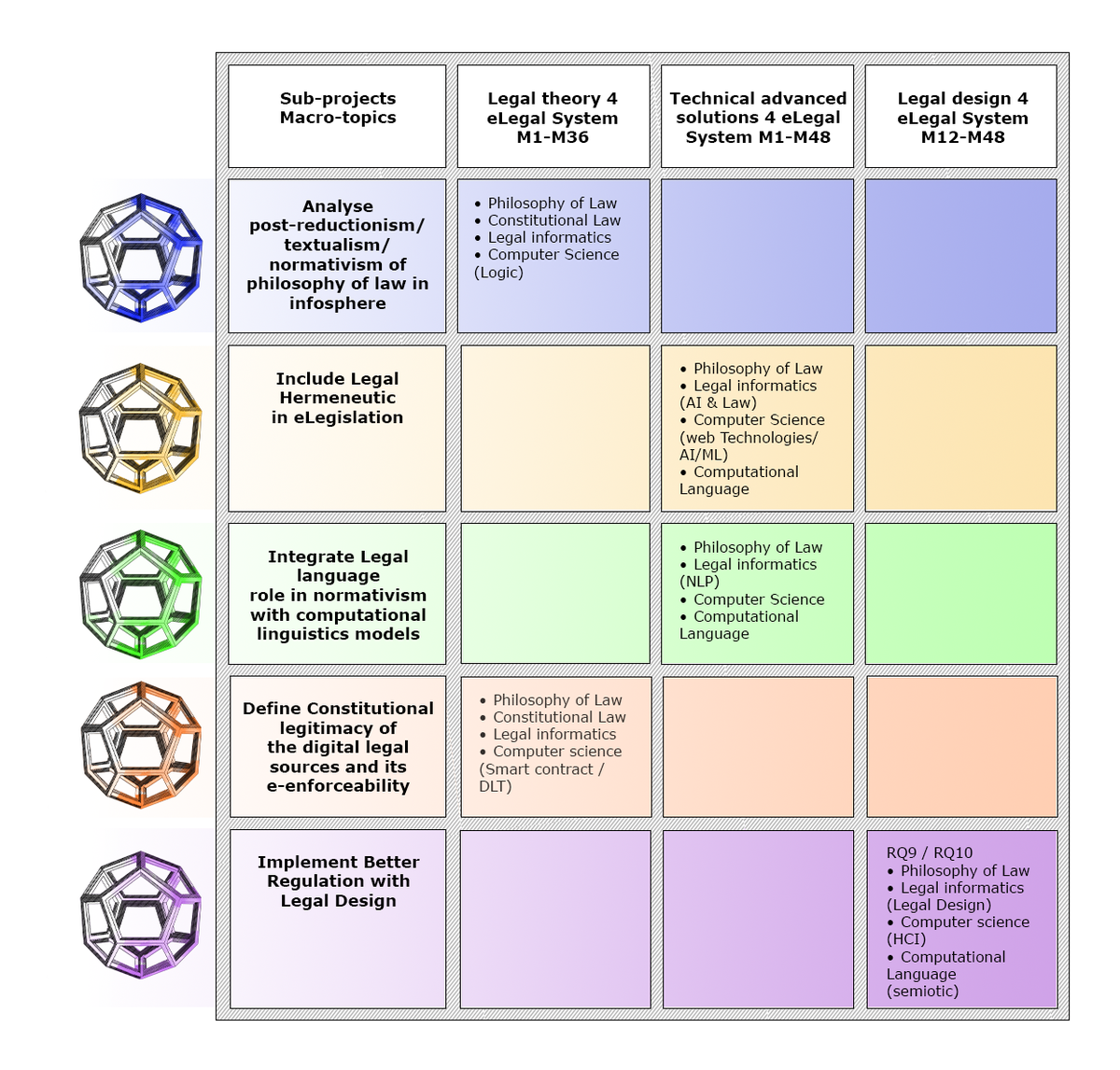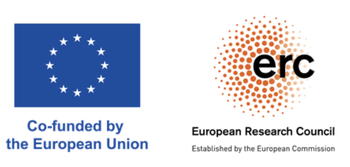We intend to subdivide the project in three sub-projects:
sub-project1 (M1-M48)
We intend to define a legal theoretical framework capable to answer to the RQ1, RQ2, RQ7, RQ8 and to define the legal principles and conditions for permitting to have an official, valid, legitimate machine-consumable law at the same level of the legal source. Supported by legal experts and computer science scholars we aim to understand if smart contracts and DLT technologies can ease the enforceability of the machine-consumable law to be applied and the legal validity of the “Law as code”.
sub-project2 (M12-M60)
We intend to respond to the research questions RQ3, RQ4, RQ5, RQ6. The goal is to identify the legal informatics and computer science best technologies that are capable to be compliant by-design with the principles elaborated in the sub-project1. It also includes the computational languages analysis.
sub-project3 (M24-M60)
We intend to respond to the research questions RQ9, RQ10. The aim is to elaborate a simplification of the law in the passage to visual format and during the rendering from code to human-consumable format. Additionally, it exists explicit norms formulated in non-linguistic acts (Moroni 2016, 2020) that need attention.
The project is a matrix where each research question, connected with some key topics, is investigated through the lens of different disciplines and correspondent foundations and methodologies. Hence, we have research questions, topics, and disciplines integrated each other in a texture of multi-disciplinary research.

